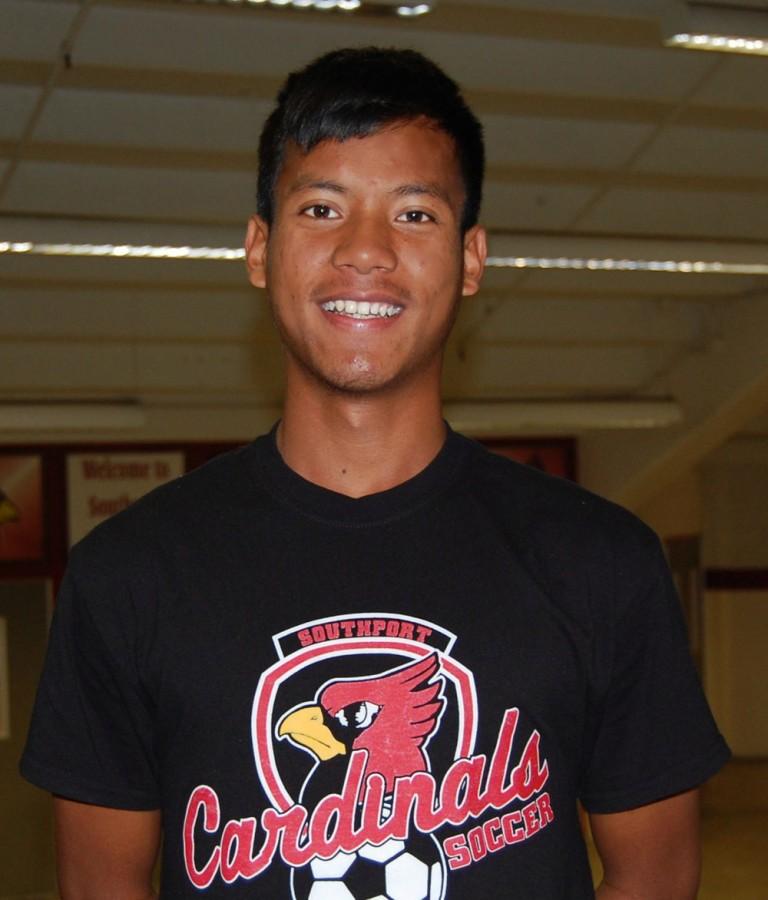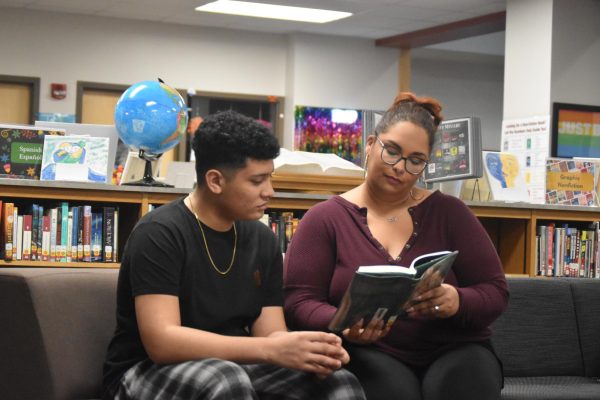Differences seen between clubs and sports
Senior Aba Phutin
Numerous students are involved in extracurricular activities through sports and clubs here at SHS. There are some differences in clubs and sports, however, and one of them includes requirements, according to soccer coach Mr. Josh Brown.
One of the sports students includes senior Bawi Phutin. Due to having school soccer and club soccer, he is unable to make time for after school clubs. He is also a member of National Honor Society (NHS). He says that being in a club or sport helps students with their resumes, language skills and time management. Phutin believes that a sport is something that students physically play, while clubs are mostly volunteering and doing projects.
“I’ve learned about time management and how to be a leader,” Phutin said. “Being captain of the soccer team, it also helps me with my English, because you need communication skills in the field.”
Brown states that being in clubs and sports give students morals on teamwork, discipline and motivation at the same time. However, the differences he sees between clubs and sports are the representation and requirements. For clubs, there is less of a teamwork focus, students usually come and go. However in sports, if there is a player who can’t make a game on a certain day, it would hurt and affect the whole team.
If a student misses multiple practice days, they would be unable to play certain games, according to Brown. There is also a little bit more of an accountability in sports, because they are representing the school when they play games and tournaments, on the other hand, clubs are mostly internal. For sports, on game days, they leave school at 5 o’clock and they usually get home around 10:30 during home games and much later for away games. This teaches them discipline and it helps them get more prepared for their future, Brown says.
Junior Esther Sui is in different kinds of clubs, such as Key club, RDM and International club. She believes that clubs and sports are equally important, they help out with college resume applications. However, the difference she sees between clubs and sports is communication. In clubs, students interact with other members more whereas sports, the players do not communicate much because their attention is on the games. She has learned different skills in many areas, such as time management, interactions, social development and teamwork.
“I learned how to interact with peers and how to manage my time,” Sui said. “It helps me develop socially. I see a lot of my improvements on my life skills such as goal setting, teamwork and accountability.”
Overall, clubs and sports both involve giving students chances of discovering their identity and having something to look forward, Brown says. Both Phutin and Sui believe that clubs and sports definitely help out with resumes and the experience of being on a team.

Hey, my name is Grace Iang. I am a junior, and this is my third year on staff. I am an editor for Student Life this year with Sung. I like staying organized...






